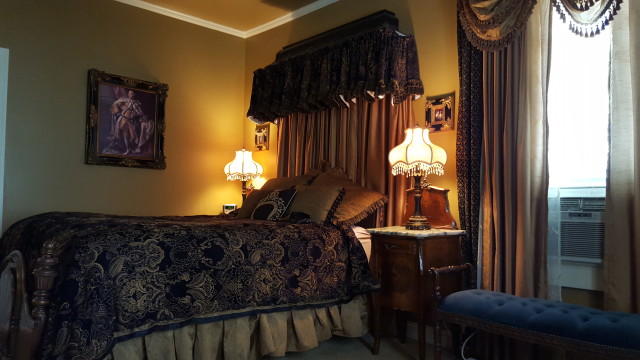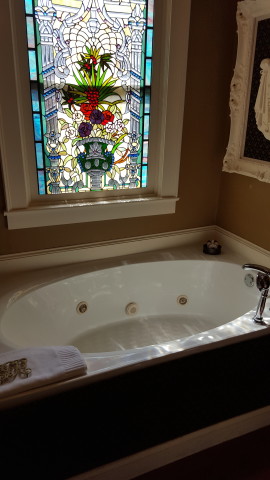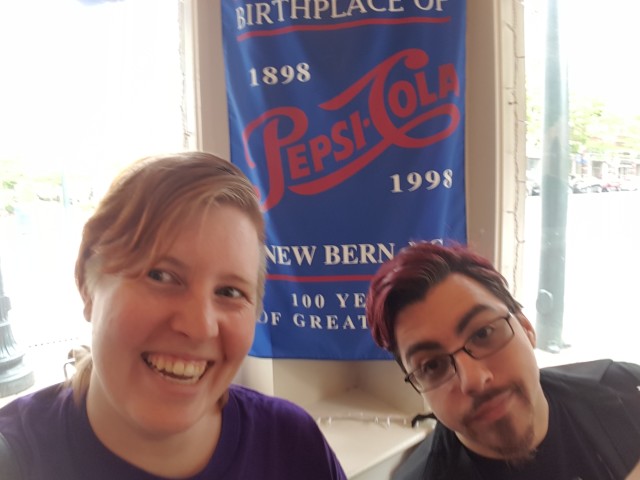This is one of those “How I quit my job to travel” stories. Sorry.
After graduating college in December 2013, I dragged my feet for a year, working part time minimum wage at a library, and attempting to avoid my mother’s deluge of subtle hints, blatant questions and outright demands in her quest to get me working full-time. As I wasn’t, I was living at home, and as such, avoiding the above attacks proved challenging. On a whim, and to relieve myself of my mother’s nagging for a few months, I took a Teaching English Certification course. Which left me with a certification, 2 bachelor’s degrees and a part time job. Clearly, something would have to change.
In January, I applied for a program to teach English in Spain, which involved several months of waiting to hear if I had been accepted. I then had to wait another two months waiting for the necessary paperwork to go to Washington DC and get my visa, then another month of waiting for my visa to come back, a week long argument with an airline, turning in my notice to my part time job of six years, a packing frenzy, and a 24 hour trip. To a hotel room. That’s when the fun really started. The first week I was here, I met another girl from the US, registered for my Resident Alien card, found an apartment, opened a bank account, set up an internet provider, bought a Spanish cell plan and managed not to get too lost. Granted, it’s hard to get too lost when your city isn’t even a mile wide.
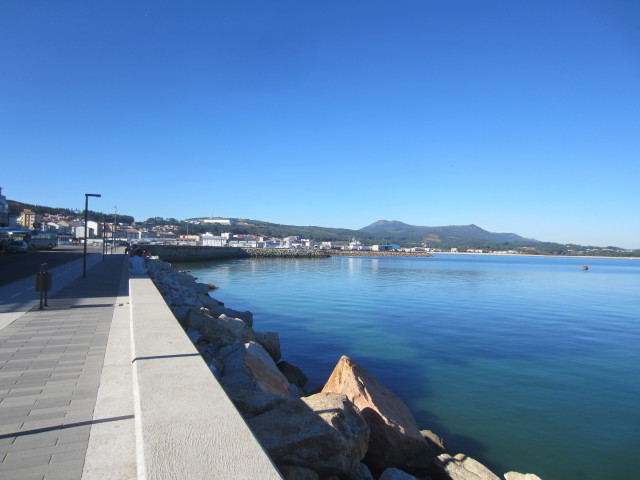
The view of part of Ribeira
Disclaimer: Ok, so quitting your job to travel/work abroad is a lot more impressive if you have a more impressive job to start with.
There are people who will make moving abroad sound like an extended vacation. Parties every weekend. Soaking in the sun on the beach. Eating Spanish delicacies. They’re not lying to you, but that’s only a fraction of the reality.
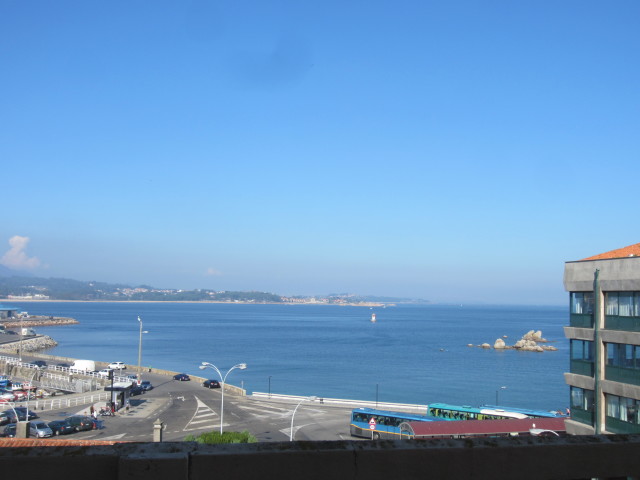
The view from our Terrace. We live on the top floor, so we get an extra wide terrace with a balcony, a view of the harbor, and extra loud windstorms. The perfect vacation paradise.
1st, if you move to Santa Ribeira de Uxia, A Coruna, Galicia, Spain, you first have to figure out what that means. Hint: The city is Santa Ribeira de Uxia. Everybody refers to it as Ribeira. A Coruna is the province, Galicia is the region. Spain is the country. Second, this city is home to fewer than 30,000 people. Who all apparently leave every opportunity they can or spend all their free time drinking coffee in a cafe. Friday nights, about 50-100 people go out and hit the bars. 3-4 of those are Americans. There are almost no cultural activities to get involved with- at least as far as I have discovered. Asking the locals results in “There’s nothing to do in Ribeira.” I’m convinced that 2/3 of the population hibernates.
2nd, There’s the homesickness. That feeling when you just really want to go to Panera or Noodles & Co or Chili’s and eat everything, but instead your options seem to be squid, octopus, and other assorted seafood/fish that you really never cared for. It’s not as powerful as the feeling that Thanksgiving is fewer than 2 weeks away and not only can you not go home for it, but you have to work. All day. And it’s the extreme annoyance that not only can you not join a theatrical group or take “intro to underwater basket weaving,” but you also cannot find any books in English in the bookstores. Netflix has become a good friend. But by far the worst homesickness is when you come down with the flu in a foreign country and you have to be an adult and take care of yourself because there’s no one else to take care of you. The past two days has been a rather pathetic debate about getting out of bed and eating.
The reality is that moving abroad is a mix between the insane vacation and the boredom/homesickness. I’m an English language assistant in a primary school, which means that I get to interact with about 180 very cute kids who are willing to share anything, including lice. and the flu. Fortunately, I think I dodged the bullet on the lice. My students vary in levels between the sixth grader whose knowledge of English apparently consists solely of the F-bomb, to a fifth grader who speaks in paragraphs, to a first grader who so adorably informed me in Spanish “Teacher, it’s that I don’t speak your language.”
Apart from my students, I live in the Celtic part of Spain, right next to a bar that keeps me awake half the night playing live music. Last night, it was a definite Celtic flare. The traditional music around here features bagpipes. There are Stone-age, Celtic, and Roman remains in the area. The local economy is built entirely on fishing and agriculture. Every Saturday, I have the option to walk across the street and buy fresh produce, cheese, meat, bread, eggs, and dried fish (ick) from the market. Unfortunately, my culinary skills are low-level, so I spend a lot of time looking at all the produce and wishing I knew what to do with it.
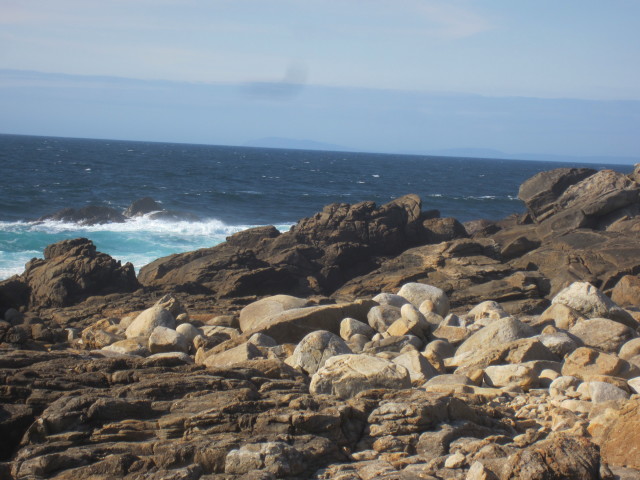
The coastline.
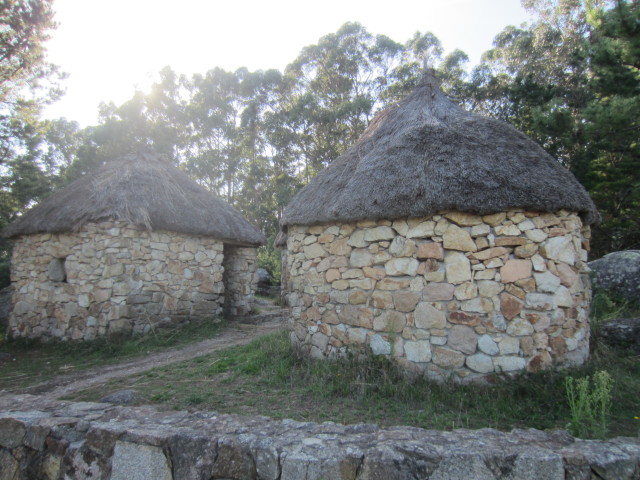
Reconstructed Celtic homes
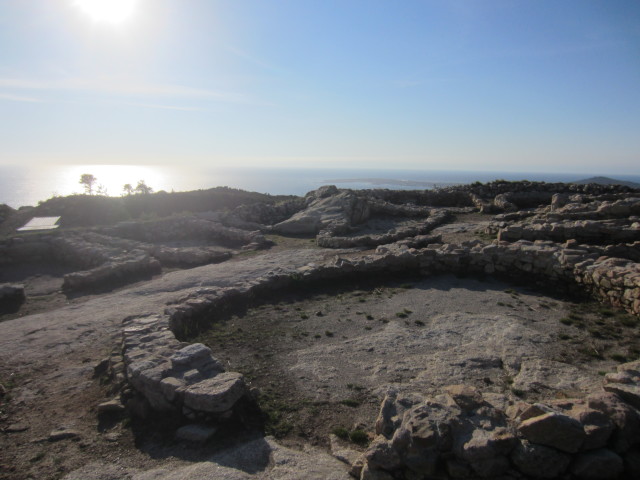
Actual Celtic home, what’s left of it.
Moving abroad can be a rewarding experience. So many places to see, so little time. Just don’t go into it thinking you’re going to party for eight months and then go home.




